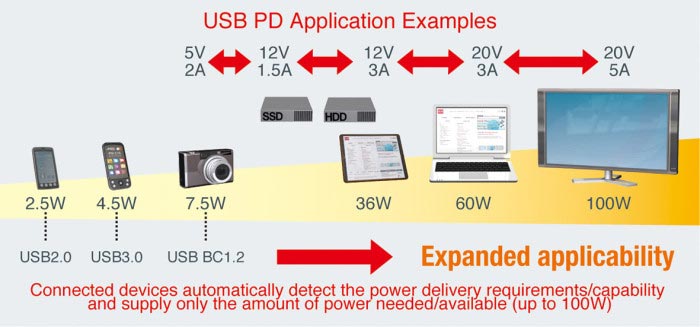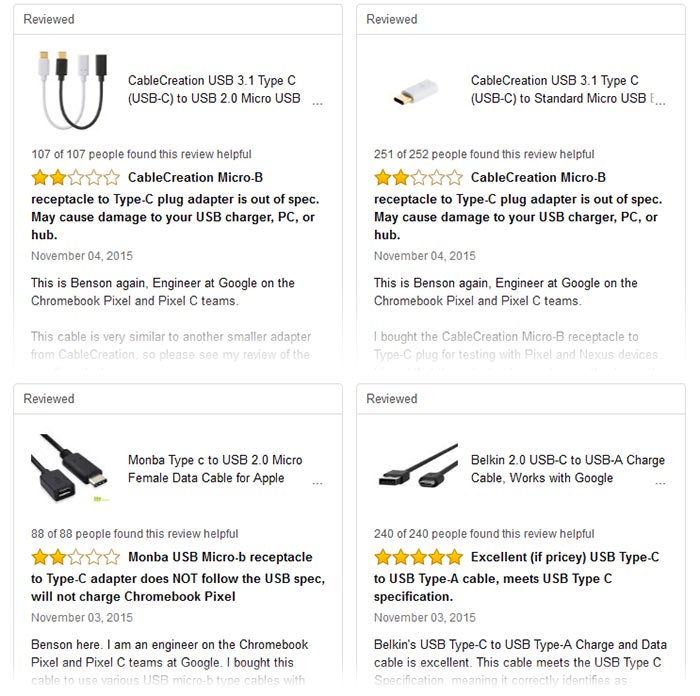USB Type-C adoption looks set to snowball in the not too distant future. Many new PC and devices boast of coming equipped with the new connector. There's good reason for its marketing bullet point popularity; it can potentially offer faster and more flexible connectivity, greater power/charging delivery, a more compact form and the convenience of a reversible connector. To be able to handle all these capabilities both the cable and connector need to adhere to certain standards, it's not just a case of using any old bunch of wires and any old connector that can plug in the receptacle in your device.

Helping the average punter avoid underspecified, wrongly specified and just plainly dangerous cables, Google engineer Benson Leung has put in some time trawling Amazon, purchasing and testing the USB Type-C cables on sale upon that popular retail site. Leung's complete set of reviews is available to browse here.

An impressive total of 14 USB Type-C cables/adapters have so far been put under scrutiny by Mr Leung. Of that number 11 were slated for not being up to the job, and many could actually cause damage to your expensive equipment; be it a PC, mobile device, hub or charger.
Leung is a Software Engineer on the Chrome OS team at Google on the Chromebook Pixel and Pixel C teams and in a typical review of one of the 'dodgy' cables often noted that the cable was simply not up to spec due to the wrong resistor being fitted to the connector. He always ends his reviews with an offer to help the maker bring the hardware up to spec and refers readers/manufacturers to the USB Type-C spec documentation.













